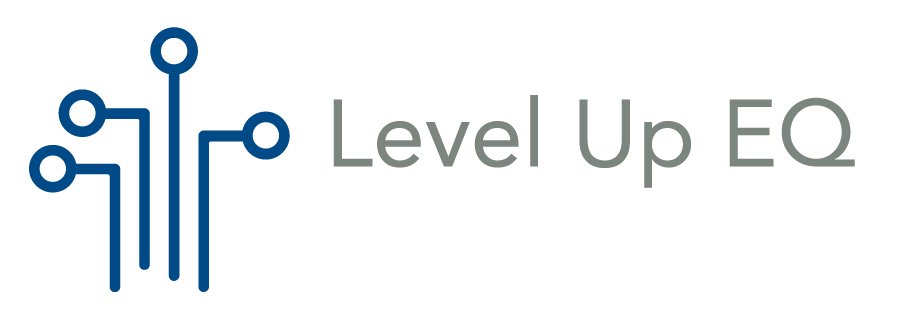
Stay Up-to-Date With Level Up EQ
Self-Care is Essential: Don't Let Anyone Tell You Otherwise
Self-care isn't a luxury for leaders; it's a necessity. These statistics underscore the real impact of self-care on leadership effectiveness and overall well-being.
AI in the Workplace: Friend or Foe?
AI resents an entirely new challenge and set of dangers as we integrate AI into businesses. Many large-scale companies are instituting bans on AI because of these concerns.
LGBTQ+ Advocacy with Lisa Williams
Hear from Lisa Williams, Inclusion and Belonging Strategist and Coach.
The Secret to Getting Employees Back Into the Office
Companies had to quickly establish new workplace policies and procedures for successful remote work, as well as invest in new technologies that enable effective communication between teams or departments.
The Science of Gratitude
Every year, Level Up EQ commits to holding November as Gratitude Month. During this month, we actively participate in different gratitude initiatives, such as a "gratitude competition" with our coaches or offering free coaching to leaders.
Passion and Purpose
What does purpose mean to you? Many would say it is the reason we do something. An app has a “purpose” and likely a very useful one! But when it comes to people, “purpose” is arguably one of the most important motivators that drive achievement.
Are You “Burning Out”? A Lesson in Self-Care
Identifying signs of burnout with work is important to prevent it from affecting your life outside of work. One of the most common types of burnout is work overload. Work-related burnout can be a sign of depression, anxiety, or other mental health problems. The symptoms of burnout vary from person to person but can be managed with self-care by instilling the discipline to disconnect.
Keep an Eye on Your High-Functioning Employees
The best way to retain your high-performing employees is to provide them with as many opportunities for growth and learning as possible. There is a different side to be aware of when it comes to those high-performing employees. This could be an underlying sign of anxiety or depression. Keep in mind that there is something known as positive pressure. High-performing employees excel in this medium.
Celebrating Differences & Promoting Inclusion: An “Inside” Job
A diverse team is a better team. That's why it's important to encourage diversity in the workplace. Embracing team diversity is a privilege that too many companies don’t take advantage of. For leaders, this curiosity, diversity in the workplace, and inclusion increase efficiency, productivity, reduce group conflict, and creates an environment that is better able to accept new team members.
Are you an Imposter?: Identifying and Coping with Imposter Syndrome
Coping with imposter syndrome can be difficult, but with a little help, you can find ways to feel better. Imposter syndrome is a common problem for people who feel insecure about their abilities. Keeping track of your achievements is a good way to deal with imposter syndrome.
The Biggest Block to Self Empowerment: The Saboteur and the 10 Ways to Get Free From it
What is self-empowerment? Self-empowerment refers to the process by which an individual acquires the authority to make decisions and act in their own best interests.
Belief Triggers That Stop Behavioral Change in its Tracks
Many of us know that we have destructive thoughts that we tell ourselves that talk us into taking action. Destructive thoughts and behaviors may be hard to identify, but they can be changed by tracking these triggers and the alternative behaviors that you take. We would be far better leaders, and humans if we better understood these inner beliefs.
Is Your Leadership Hurting You?
There are a number of ways to improve leadership effectiveness. Effective leaders must be able to inspire and motivate their team. A supportive leader will be able to keep the group focused on the mission of the organization. Are you behaving and interacting in accordance with that desired impact?” Understanding your behaviors and interactions can make all of the difference in your leadership.




















